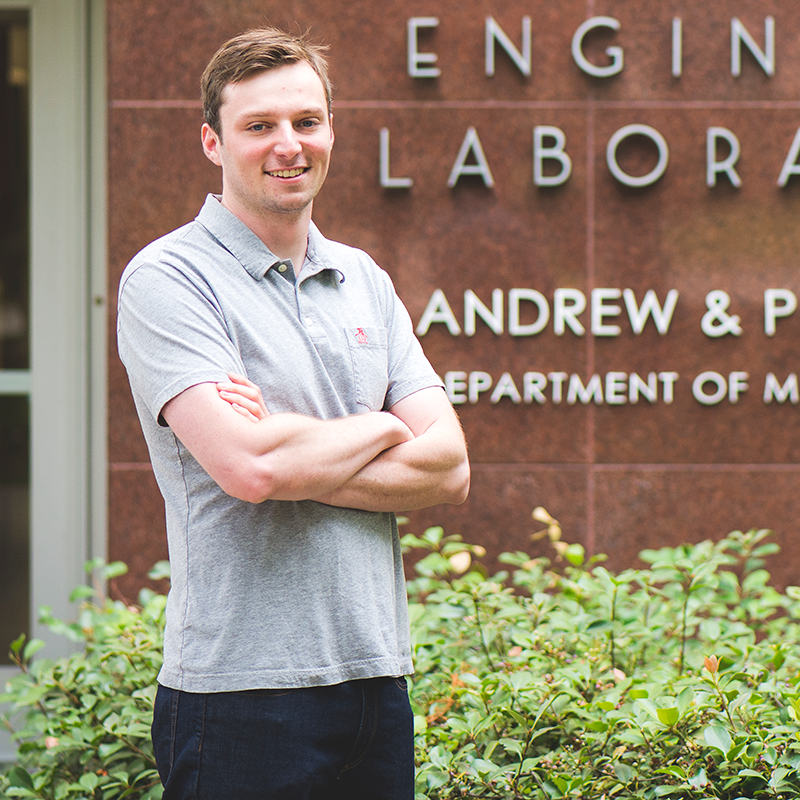
The WaterShed house ... is my biggest contribution to the engineering community to date.
UMD Degree: B.S. ’13, Materials Science and Engineering
Currently: Doctoral Candidate, Department of Applied Physics and Materials Science, California Institute of Technology
When Nick Weadock enrolled at the University of Maryland’s A. James Clark School of Engineering, he already had an interest in renewable energy and sustainability, with the possibility of starting a business someday. He wasn’t sure which department would be best to explore this area, but that all changed following a compelling presentation by the Department of Materials Science and Engineering (MSE) at an admitted student open house.
After chatting one-on-one with MSE faculty about the possibilities in the discipline, Weadock learned that research was a huge focus for the department, which began to spark his interest in the fundamentals of renewable energy instead of the application.
Luckily, Weadock’s A. James Clark Scholarship gave him the freedom to engage in in-depth summer research projects with faculty, such as with Clark School Associate Professor Liangbing Hu’s research group on an environmentally friendly battery made from wood.
While an honors student at UMD, Weadock also played a key leadership role in designing and operating the university’s winning entry in the U.S. Department of Energy’s 2011 Solar Decathlon, a collegiate competition that challenges student teams to design and build full-size, solar-powered houses. Weadock designed the heating, ventilating, and air conditioning system for the UMD team’s offering, called WaterShed, as well as ran the house during the intensive 10 days of competition on the National Mall.
“The WaterShed house is still standing at the Pepco facility in Rockville, Maryland,” he says. “I’ve been back to visit it a few times! It is so gratifying that it is still being used as a teaching tool; it is my biggest contribution to the engineering community to date.”
Weadock has also attended every Solar Decathlon competition since he and his team won back in 2011. This year, he’ll get the chance to cheer on UMD once more as the university’s 2017 team strives to take the top title with their project called reACT (resilient Adaptive Climate Technology).
As a Ph.D. candidate in the Department of Applied Physics and Materials Science at the California Institute of Technology, Weadock has continued his research interest in renewable energy. He is currently looking at how we can better use metal hydrides and carbonaceous materials for hydrogen storage, which has renewable energy implications in developing safe, energy-dense, rechargeable batteries and fuel cells for electric vehicles.
Learn more about Building Together: An Investment for Maryland by visiting buildingtogether.umd.edu.
Top